You’ve decided to ditch that 9-5 job and be a freelancer!
Yay!
I’m a freelance writer, and I get paid to write for business! It’s the best, and I want that for you too.

But, you might be asking, what is freelance writing? A freelance writing client asked me to write a blog post about Instagram marketing.
Oh, boy!
You know what Instagram is – you’re on it ALL. THE. TIME – but your freelance writing client wants you to write about the marketing aspect for businesses.
You’re a new freelance writer, and you have something in your arsenal that can help you through this all.
It’s Google.
Finding credible sources for research has never been easier.
But, be warned – not EVERY search result on Google is credible. What makes a credible source?
And not every blog you source in your article is relevant or an authority in your industry.
Client Expectations for Their Content Strategy
Just to be clear: your content for clients is not a research paper. You don’t need primary sources or elevating sources.
When you land a freelance writing job, you will quickly learn that clients expect certain things from you.
You are now a freelancer, not an employee, and that means:
- Being responsible for invoicing your clients
- Answering emails from your clients
- Marketing your freelance writing business
- Networking
- And more
As you see, freelancers wear many “hats,” but that is a great thing!
You are in control of all of this.
But, that’s not to say you shouldn’t listen to the client and their expectations. They hired you to write something for them, and now you have to deliver.
Typically freelance writing clients expect:
- You write engaging content
- You write for their audience (marketers, business owners, beginners, moms, etc..)
- You are professional (no ghosting from you!)
- Your content is up-to-date and has credible sources examples
Let’s tackle the last client expectation – credible and reliable sources.
What Makes a Credible Source?
As a new freelance writer, you may not know what makes a credible source for research.
After all, when you search on Google, Google gives you page after page of results.
You’ve probably learned in high school or college that a credible source is backed up by research and is peer reviewed.
Unless your freelance writing niche is health or educational, you won’t be using these types of sources for your online writing (but you might).
Instead, what makes a source credible online is:
- It’s current
- It’s from a popular and/or authoritative blog (ex: Hubspot, Ahrefs, Content Marketing Institute for my niche)
- The source is well known in its industry
- The information is from a trusted reliable source (ex: leaders/authors in your industry) and act as the information source
- The information is from well known news sites (ex: Harvard Business Review, Psychology Today, The New York Times, Fast Company, Globe and Mail)
If these are not met, you might run into unreliable sources.
You Use Google The Wrong Way
Your first project is a 1400-word blog post on Instagram marketing strategies for online businesses.
So, what do you do? You go to Google and type in our search term:
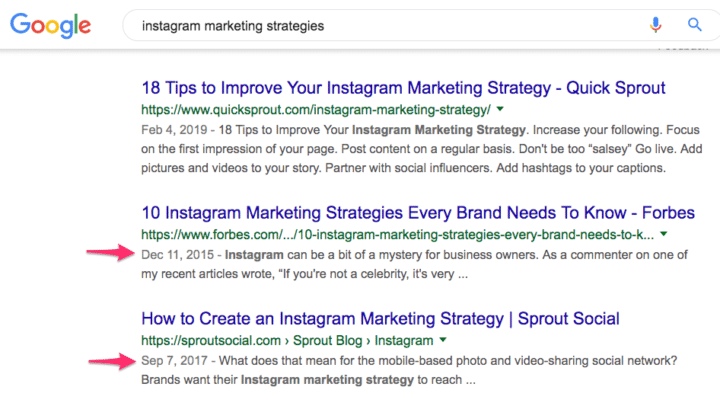
You quickly see that most of the results are years old.
Instagram is a social media platform that changes constantly. You can’t rely on those sources to provide up-to-date and relevant information.
So what do you do? How do you cite sources?
Time Saving Hack to Finding Credible Sources for Research
How Do I Find Reliable Sources?
One easy and quick way you can find reliable and credible sources for research is to only search popular and authoritative sites such as Hubspot.
But, maybe you think that’s too time-consuming.
First, you have to find the blog, then search the blog’s content and then visit another credible blog and do the same thing.
This can be time consuming.
Instead, do everything on Google.
Go to Google and type in site:(blog URL) (niche topic).

You can open a new tab and use a different credible blog – such as Demand Metric – and search their blog:
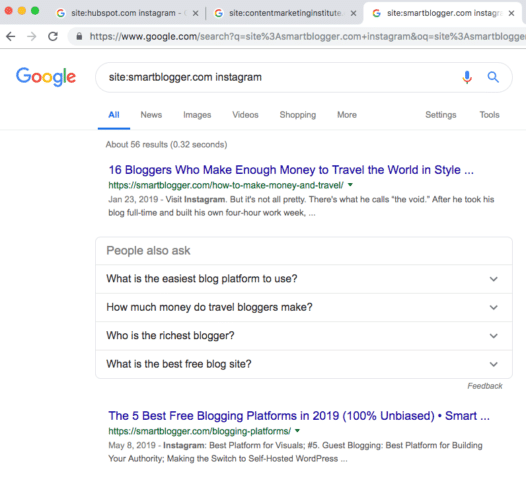
Now, the only thing that you need to know are the authoritative blogs in your industry.
If you are brand new to your freelance writing niche, this might pose a problem.
But, I have a solution for you!
Simply search for your blog topic in Google and see the blog names of the first few results.
If you don’t know if they are a leader in your industry, just check out the site’s traffic using Similar Web.
For example, if I decided to become a pet writer, and my first project is about pet care for seniors, I can run a Google search to see what’s out there.
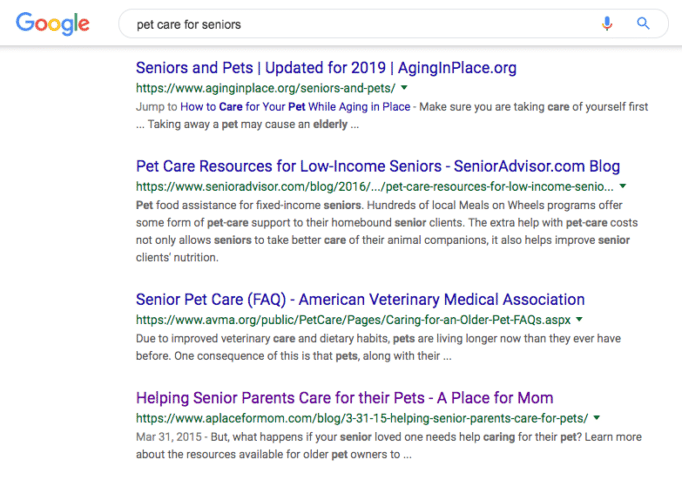
I can go to a web domain like Similar Web and check each of these blogs to see if they are popular.
For a Place for Mom, they receive almost 1 million visits to their site. I know, as a new freelance writer, that this is a credible source for my online writing.
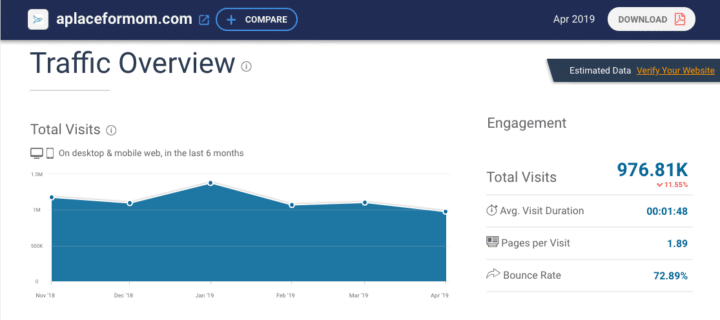
And with some critical thinking under your belt you can pull all these sources together to make a great article for your client. Just remember to site the original source in your article!
Using Google’s Search Tools
Did you know that Google has a tools bar in its search results?
You can use the date tool to only search for up-to-date and relevant sources for your freelance writing article.
So, if you don’t want to use the site: method, you can plug in your search topic, press tools and select Anytime and Past year.
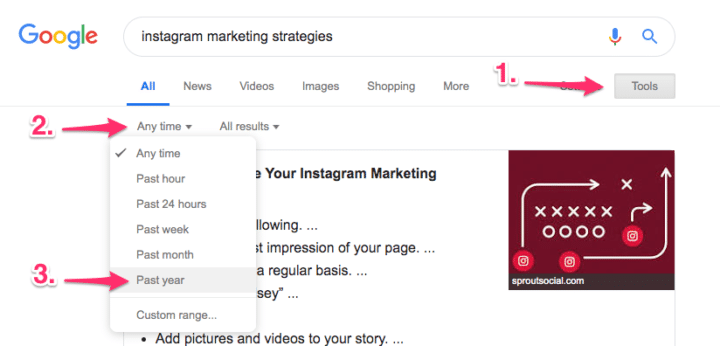
Now, my search result for credible information sources will be within this year. This is also a time saver.
What About Finding Research Journal Articles for Clients?
If you have a medical client, health client or a client in an industry that requires journalistic sources or scholarly sources, you can find them easily using PubMed, Google Scholar or Google Books.

When citing sources make sure you have a primary source and secondary source when looking at journals.
Other scholarly journals you can use for credible sources for research (and are an online source) are:
- Pew Research
- JSTOR credible information and scholarly article database
- EBSCO journal article database
- ScienceDaily – if you need easy to read studies here’s the place for different types of study summaries
- Gallup News – for gallup polls
- Mintel – rounds up stats for reports in varying topics
- SAGE – I talk about this journal more down below
- Science.gov
- ResearchGate
- CORE – scientific research (open access)
Another database or for journal research articles is Mendeley.
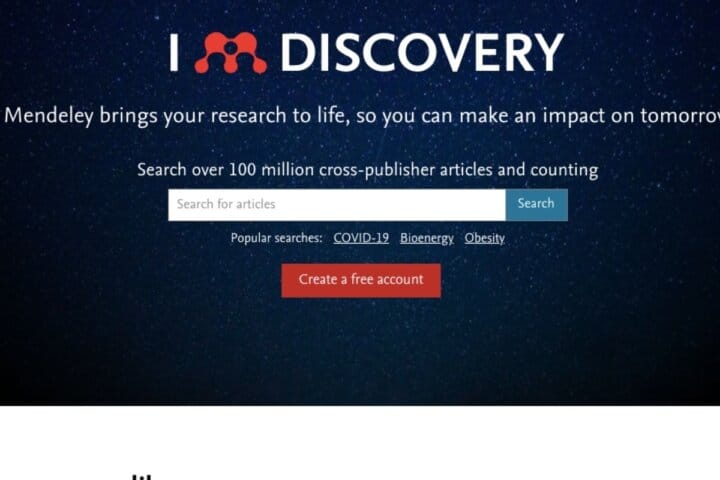
These sources act as credibility in your writing. Your content will provide accurate evidence, provide evaluating information, provide an authoritative source with no bias. You might site the Wall Street Journal or a newspaper article on credible websites.
For aggregate news, using a reputable source like Google News can add more to your content.
What About Digital Marketing Research?
Even if you are in the digital marketing niche (like me), you can still use journal articles to boost your post, make it more valuable and, in the end, increase your value.
High-paying clients expect top notch content and a link from a reputable source for research can win the job.
One research journal or research guide is SAGE which aggregates many journals including. Social Media + Society, and the Journal of Marketing.
The other is from the Henry Stewart Publications and is called the Journal of Digital and Social Media Marketing.
Finally, for cool stats in the digital marketing industry, make sure to bookmark Statista.
You can use Forrester for business related statistics, market research, trends in technology and more.
Make sure that once you gather everything you’re evaluating sources that you can use and shelving the rest.
What About B2B Market Research?
Are you a B2B freelance writer?
While most of my content focusses around digital marketing, being a B2B writer often means sourcing reports to help make our article, white paper or blog post more credible.
A great hack to use is to Google, “(niche) + state of industry report.”
This shows you the latest news source for various industries.
For example, you can search up health state of industry report.
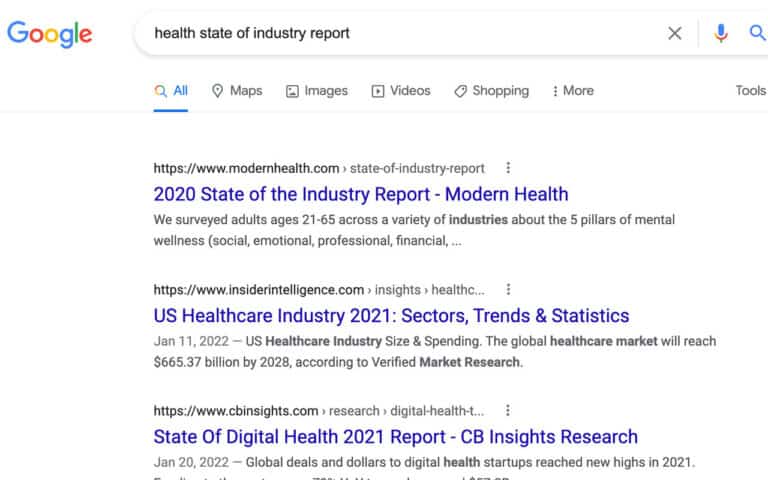
You can do this for any niche – retail, farming, education, etc.
You can also search Our World in Data for more reports.
These reports will give you the stats and facts and help you develop your “niche language” when sourcing these white papers and reports.
What About Subject Matter or Real World People?
To elevate your content (or to lend credibility to your content) you can source a subject matter expert (SME) or a real world person (someone with a brick and mortar store).
How do you find these people?
The best is to use Help a Reporter Out (HARO). This allows you to pitch your ideas and get sources from those that also signed up to HARO.
You can also use Facebook Success Stories or any case study you find.
You can then learn about the success story and share it in your content.
Another way to find success stories is to find the tool you’re talking about. Typically this lends itself well to tech, B2B or SaaS writers, but this process can work for you too.
Then see if that tool has a success story section about the tool you’re writing about.
This is a unique way to find more success stories that you can use to add relevant content to your article.
After Your Research, What Do You Do Now?
Okay!
I gave you a ton of journal articles, stats, polls, and studies to help you research credible sources. But, what do you do with all of this wonderful information?
You create a swipe file.
I just use Google Docs to copy and paste stats I see and keep track of places to source studies.
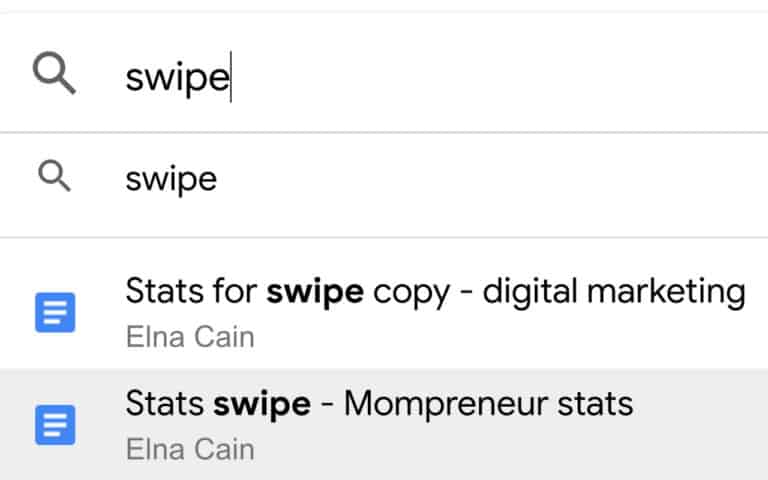
Have fun with your research!
Summarizing Research Articles Can Be….
Sometimes these sources you are gathering for your swipe file are pages and pages of text.
If you have an article to write you can sift through dozes of credible sources and each of those are a mini book to read too!
Instead, download the free Chrome Extension Scholarcy.
This will automatically summarize large text research articles for you!
Finding Credible Sources the Right Way
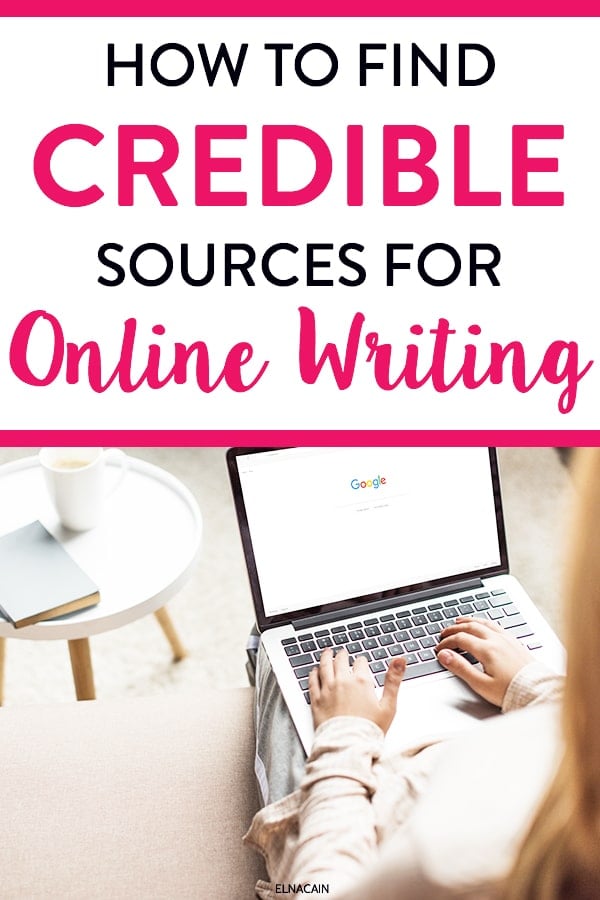
Look –
I’ve been a freelance writer since 2014, and the one thing I always am searching for are ways to save time.
I’m a mom to twins, run a house, meal plan, have multiple blogs and freelance writing clients.
I have a lot on my plate, so if I can find easy and quick ways to search for credible sources and figure out what makes a credible source when I’m writing, you bet they will become part of my writing process!
Over to you –
What’s your favorite way to research and find credible sources?




14 Comments